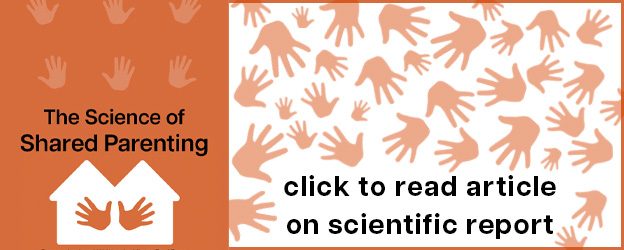Key Findings:
- Four in five criminal prosecutions of domestic violence lead to acquittal
- Growth in domestic violence reports overwhelmingly driven by reports of psychological violence
- Substantial number of reports in midst of marital separations are false allegations
- Most femicides take place in context of, or aftermath of, breakup from partner or spouse
- Risk assessments by social workers deemed unreliable
- Police mostly process reports rather than do vigorous investigations
- Women are now being encouraged to leave home after reports of domestic violence
- Family courts often leave men feeling devastated with rage, loss, and hopelessness
The last paragraph of the report of an inquiry into the State’s failings surrounding the murder of Bernice Cassar, conducted by retired judge Geoffrey Valenzia, starts with this sentence: “On the other hand it has been noted that a man uses the fist while a woman uses the mind and the tongue.” The literal translation (the report is in Maltese) does not quite capture the cultural undertone – the idea that women employ sly manipulativeness and scathing taunts, and that men resort to dumb and blunt force.
That paragraph then goes on to discuss the need for a change in attitudes. Yet that first sentence is a stereotype, and I similarly think that most recommendations in the report to be stereotypical or the usual mantras.
I cannot assess the entire report because only the recommendations have been published. I like some of the recommendations, including calling for a triage-type system to identify and prioritise action on the serious reports of domestic violence. Another good idea is to expedite proceedings, including immediate arrest, in instances where protection orders are breached.
Yet other recommendations do not delve deep and wide enough. Take, for example, the call for more resources to the courts, for more social workers, for police more working on domestic violence. Calling for more resources and more personnel has become a mantra.
But where do you find such additional social workers and police officers? Shortage of social workers has been a perennial problem, and the police also face a shortage in all squads and at all levels of the force.
And would it make much difference in any case? What about tackling the elephant – or elephants – in the room?
Psychological violence and failed prosecutions
Figures given in parliament two months ago show that the reports of domestic violence quadrupled in the past 15 years, from 450 in 2008 to 1830 in 2022.
At the same time, the rate of femicides in Malta has been on a par with the rate in European countries, where incidence of femicide has fallen by nineteen percent in a decade.
Further data given in parliament in 2019 shows that the growth in reports of domestic violence has mostly been in psychological violence, which increased from 189 in 2010 to 664 in 2018.
Psychological violence now makes up more than half of all reports. And although the effect of psychological violence can be insidious and debilitating, it is hard to prove or disprove. Getting probative (court-accepted) evidence would require a full psychological assessment of all parties, which would take weeks or months to conduct, and in turn lengthen criminal prosecutions as parties would pick on the psychological report in court.

Moreover, according to sources, the police only process reports of domestic violence, including taking a statement of the parties and any witnesses, without any further rigorous investigation.
As such, in psychological violence and (to a lesser extent) in other types of domestic violence, the evidence in many cases boils down to two conflicting versions.
Around four in five cases that end up court fail for these and other reasons – the ‘other reasons’ include the alleged victim forgiving or refusing to testify against the alleged perpetrator. In some of these cases, the couple patch things up by the time the case is heard in court or, in cases that happen during separation proceedings, the couple end up reaching an amicable out-of-court settlement and would not want to disturb that hard-won truce.
Such high failure rate in prosecutions has the insidious effect of fostering jadedness among police officers, social workers, and magistrates.

False allegations
Another phenomenon are false allegations of domestic violence or child abuse in the midst of marital separations.
I have not come across studies that quantify this phenomenon, but discussions with police officers, social workers, and members of the legal profession suggests that the proportion of false reports during separations is substantial. Many of them personally know of cases in which someone – typically the man – ended up being evicted from home or rendered unable to see his children, or gotten stuck in the criminal justice system, only to transpire that the allegation was false.
And this makes them wary. This also applies to magistrates wary of issuing a protection order, as well as judges in the family courts suspending contact between parent and child at the moment allegations are made.
Social workers have been under most pressure because they have to carry out the DASH assessments, which stands for Domestic Abuse, Stalking, Harassment and Honour Based Violence Assessment. DASH assessments are then used to determine the issuance of protection orders. (Part of the reason for perennial shortage of social workers is the stress of the job for social workers who deal with domestic violence and child abuse.)
Concern over the reliability of DASH assessments is now widespread. In the case of Bernice Cassar, for example, the DASH assessment was ‘low risk.’ On the other hand, there have been cases of fathers evicted from home after a report made against them was scored ‘high risk’, with the allegations eventually deemed false or unsubstantiated in court.
In his recommendations, the judge Geoffrey Valenzia recommended other assessment models, or at least continuous assessment.

One of the problems of DASH is that it relies on an interview with the victim, and some ‘victims’ lie or exaggerate.
In the midst of separations, a report on domestic violence can get you temporary custody of the children (the temporary can become permanent as the years pass in court), maintenance payments, and get the alleged perpetrator ejected from the matrimonial home. This is pursuant to Article 37 (2) and Article 47 of the Civil Code.
Broken system neither here nor there
The Gender-based Violence and Domestic Violence Act, which came into force in May of 2018, introduced the concept of temporary protection orders that would lead to the eviction of the alleged perpetrator. This led to a string of men being evicted from their homes after high scores in DASH assessments, and then later exonerated in court.
Within months, magistrates started expressing disquiet and at least one man filed a constitutional lawsuit. The law was amended a year later to make the process more rigorous by specifying additional police investigations before going to court to request temporary protection order. But the police – as already pointed out – many times do not carry out rigorous investigations (this is due to various reasons – overwhelming number of reports, jadedness due to substantial number of false allegations, and their work habits.)
The amendments also tried to raise the stakes by saying that, before deciding on a protection order, the magistrate “may require the police officer, the professional, or the person making the report or complaint giving the information, to confirm on oath the information supplied by him.”
I do not know how often magistrates are requesting such oaths, but in a case I followed in recent weeks the person making the allegation was not requested to take an oath. And neither were the police. The case happened in the febrile atmosphere in the weeks after the gruesome murder of Bernice Cassar at the end of last year.
The allegation was made by a woman, or mother, and the DASH assessment showed high risk. The woman then left the house with the children, and – despite a superficial police investigation – the magistrate issued a temporary protection order, leading to the man, or father, to lose contact with his children. The man has been protesting his innocence and claiming that his rights have been breached because the DASH assessment – and hence the protection order – relied only on the allegations of the woman. (Names are being withheld to protect privacy of the young children.)

Moreover, in recent years the police have been offering or encouraging women who report domestic violence and feel unsafe to move out of the house to a shelter where they can have better protection. I could not establish how widespread this practice is, or whether this emerges from the law, which specifies that after a report is made and a social workers carries out an assessment, the alleged victim is provided with “sheltered accommodation”.
In any case, this may be drift: natural justice suggests that the perpetrator, not the victim, ought to leave or be ejected from the matrimonial home. This has been recommended in a report called FEM-United, published by the University of Malta and Women's Rights Foundation, which said that the alleged perpetrator has to be evicted from the home.
Link between femicides and separations
Statistics clearly show that femicides are most likely during or after separations.
A split from partner or spouse is emotionally devastating to both parties, particularly if they have children. Men are the biggest losers because, in the typical post-separation arrangement, they are reduced to diminished parent figures of having “access” to their children (normally one day on the weekend, two two-hour slots on weekdays) and being forced to pay maintenance to the mother to raise the children.
As a review of the scientific literature demonstrates, such custody arrangement is damaging to children’s psychological wellbeing.
Fathers also suffer profoundly from deprivation of meaningful involvement in their children’s lives. As such, allowing those fathers who want to remain involved in children’s upbringing to remain involved would give them a sense of hope and the idea – an important one – that they are not losers.

This would drain much of the toxic feelings surrounding acrimonious separations, and change the dynamic in the family court from ‘winning’ to ‘cooperation’ for children’s best interests. This could in turn reduce the incidence of false allegations, and calm tempers or emotions at a time when a sense of unjust loss can trigger feelings of rage and victimhood in men.
This will of course not preempt all femicides. There will still be those irredeemably possessive and obsessive. These need counselling, but unfortunately psychological counselling does not work with those who do not accept counselling.
Moreover, courts cannot allow children in the care of a parent who engages in coercive violence against a former partner – the science on conflict and shared parenting is reviewed in an extensive report I published (click on the banner below to open the report).
Such cases can only be tackled by more effective criminal sanction and deterrence. And one of best ways to free up resources to focus on such cases is to reform law and family court to keep fathers (those not engaged in coercive violence) involved in meaningful parenting, change the dynamic of winning or losing in the family court, and reduce the prevalence of false allegations of domestic violence and child abuse during separations.
Featured Image Copyright: JeanLuc Ichard – stock.adobe.com
Donate to Shared Parenting Project
In the shared parenting special reportage section, I have researching, compiled and written two extensive reports, and am working on a series of investigative articles and insightful analysis. This work takes much time, resources and effort, and it serves to reveal and rally, and become a rallying point or point of reference – enable and sustain this invaluable (yet neglected) work for the sake of our children and the rest of us by contributing as little as €5.






